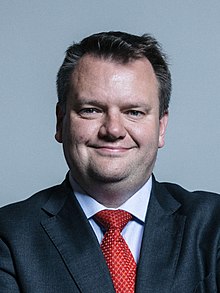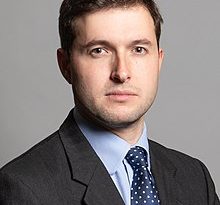Nick Gibb – 2022 Statement on School Rebuilding
The statement made by Nick Gibb, the Minister of State at the Department for Education, in the House of Commons on 19 December 2022.
My noble Friend the Parliamentary Under Secretary of State for the School System and Student Finance (Baroness Barran) has made the following statement.
The Department for Education has announced the next 239 schools to be provisionally selected for the school rebuilding programme and has also confirmed schools, high needs and early years revenue funding allocations for 2023-24 across England.
The school rebuilding programme was launched in June 2020 and will rebuild or significantly refurbish buildings at 500 schools and sixth form colleges over the next decade. Including the 161 projects previously announced, this announcement means that 400 schools have now been selected for the programme. Projects will enter delivery at a rate of approximately 50 per year, and will transform the educational environment for hundreds of thousands of children in the poorest condition schools.
To ensure we are delivering the greatest improvement to the school estate, each school in the programme has been selected from nominations based on the condition and safety of its buildings. Selected schools include primary, secondary and special schools and sixth form colleges.
Construction of new buildings at some of the previously announced schools is already underway, with a number of projects almost completed. These projects are supporting jobs and skills in local communities and driving productivity and innovation in the construction sector. New buildings will be net zero carbon in operation, incorporating modern designs and technologies, contributing to our sustainability commitments.
In addition to the school rebuilding programme, we are continuing to invest in the school estate with annual capital funding. We have allocated over £13 billion since 2015 to maintain and improve school facilities across England, including £1.8 billion in financial year 2022-23. We have also allocated an additional £500 million in capital funding to schools and colleges this financial year for energy efficiency upgrades, helping to reduce energy use during the winter months and beyond.
Details of the schools selected for the programme and more information about the methodology used have been published on www.gov.uk.
On funding, we are allocating the additional net £2 billion for schools announced at the autumn statement.
Overall, core schools funding is increasing by £3.5 billion in 2023-24 compared to 2022-23. School funding will be at its highest ever level in real terms per pupil by 2024-25, totalling £58.8 billion.
This includes an increase in mainstream school funding, for the 5-16 age group, of over £2.5 billion in 2023-24, compared to 2022-23. High needs funding is increasing by almost £1 billion in total.
As part of this increase, mainstream schools will receive a new, mainstream schools additional grant (MSAG) for primary and secondary provision in the 2023-24 financial year. This equates to a 3.4% increase in per pupil funding for mainstream schools, on top of the allocations through the dedicated schools grant, which we are also publishing.
The detailed methodology for allocating this new grant is published at:
https://www.gov.uk/government/publications/mainstream-schools-additional-grant-2023-to-2024
The dedicated schools grant allocations are available at:
https://www.gov.uk/government/publications/dedicated-schools-grant-dsg-2023-to-2024
Maintained special and alternative provision schools and academies will also receive supplementary autumn statement funding, delivered by placing a new condition of grant on local authorities’ use of their high needs allocations.
Pupil premium per pupil rates in 2023-24 will increase by 5%. This will increase pupil premium funding to £2,865 million in 2023-24, an increase of £180 million from 2022-23. This increase will ensure that this targeted funding continues to support the most disadvantaged children in our schools.
Finally, for early years, we have published the Government response to the early years funding formulae consultation launched on 4 July 2022, confirmed the hourly funding rates for the free early education entitlements in 2023-24 for each local authority, and announced their indicative allocations.
Reflecting the recently announced national living wage increases, we are investing an additional £20 million into the early years entitlements. This is on top of the £180 million for 2023-24 announced at the spending review. Taken together, this will mean at national level, early years providers are supported with the additional national living wage costs associated with delivering the free childcare entitlements next year.
We have updated the data underpinning the early years funding formulae, and have confirmed the approach to protections set out in the consultation to ensure the transition to new funding levels implied is manageable. The minimum funding floor for the three and four-year-old funding rate will therefore increase from £4.61 per hour in 2022-23 to £4.87 per hour in 2023-24. All local authorities will see at least a 1% increase in their funding rates in 2023-24, and up to a maximum of 4.9% for the three and four-year-old rate and up to 10% for the two-year-old rate. We will also increase the early years pupil premium (EYPP) and disability access fund (DAF) rates, from 60p to 62p per hour for the EYPP, and from £800 to £828 per child per year for DAF.
For maintained nursery schools (MNS), we are confirming the additional £10 million announced on 4 July 2022, providing for a minimum hourly rate of £3.80 per hour for MNS supplementary funding for all local authorities in 2023-24, and a £10 cap on the hourly rate, with transitional arrangements for the most affected local authority. We intend to maintain the cap at that level in 2024-25.



